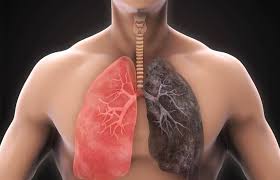
Govt Strengthens Efforts to Combat Non-Communicable Diseases in Deprived Areas
The Government of India is ramping up its efforts to prevent and control non-communicable diseases (NCDs) in underserved regions across the country, with a comprehensive program under the National Health Mission (NHM). Minister of State for Health and Family Welfare, Prataprao Jadhav, recently highlighted in a written reply in the Lok Sabha that significant strides have been made to address the growing burden of NCDs, particularly in deprived areas.
The National Programme for Prevention and Control of Non-Communicable Diseases (NP-NCD) provides both technical and financial support to States and Union Territories, with a focus on strengthening healthcare infrastructure, developing human resources, and promoting awareness. The initiative targets a multi-faceted approach that includes early diagnosis, appropriate referrals, and health promotion aimed at preventing the onset of diseases like diabetes, hypertension, and cancers.
As part of this program, the government has established over 770 District NCD Clinics, 372 District Day Care Centres, 233 Cardiac Care Units, and 6,410 Community Health Centre NCD Clinics. These facilities are key components of the population-based initiative that offers comprehensive screening, management, and prevention services for common NCDs.
Under the NHM, NCD screening is integrated into primary healthcare services, with a focus on early detection and timely interventions. Notable diseases targeted include oral, breast, and cervical cancer, along with the prevention and management of diabetes and hypertension.
In addition to expanding healthcare services, the government has prioritized public awareness campaigns to inform citizens about NCD prevention. These campaigns leverage health observances such as NCD-related health days and social media platforms to engage communities. Financial support for awareness initiatives is allocated to States and Union Territories as per their specific Programme Implementation Plans (PIPs).
A vital component of these awareness efforts is the role of Accredited Social Health Activists (ASHAs), who are instrumental in reaching communities. Through home visits, group meetings, and health campaigns, ASHAs educate individuals and families on adopting healthy lifestyles, including nutritious diets, regular exercise, and avoiding harmful habits like tobacco and alcohol use. They also emphasize the importance of regular health check-ups for the early detection of NCDs, enabling timely medical intervention and better health outcomes.
With these ongoing initiatives, the Government of India aims to create a healthier, more informed population, particularly in regions that have historically lacked access to healthcare resources.